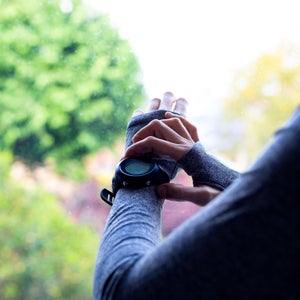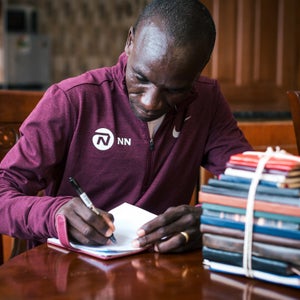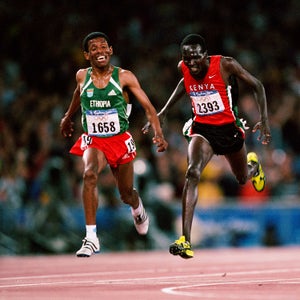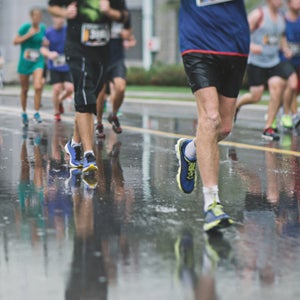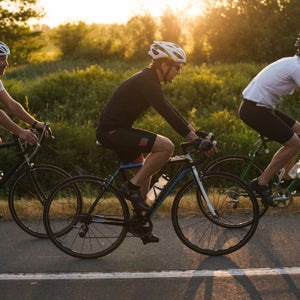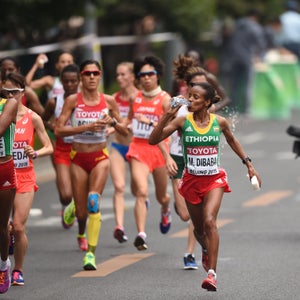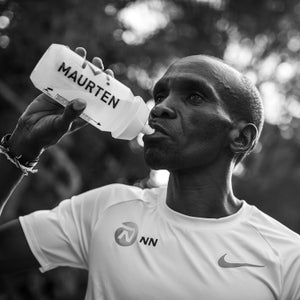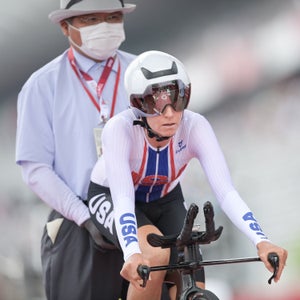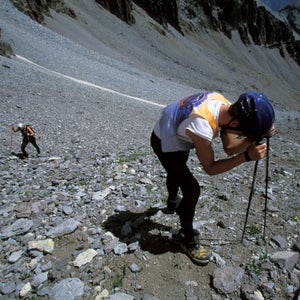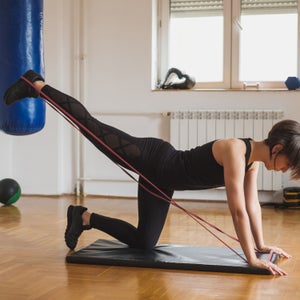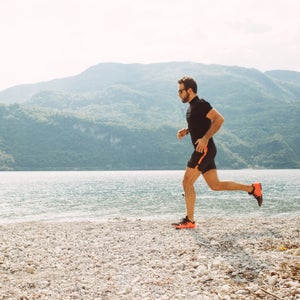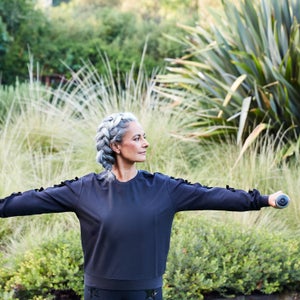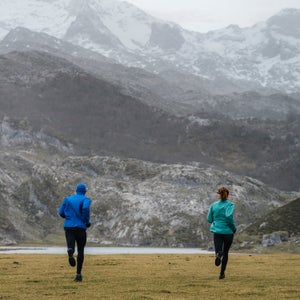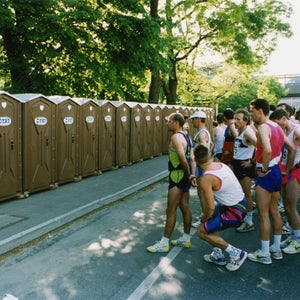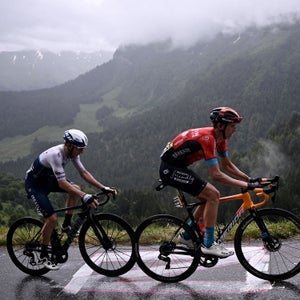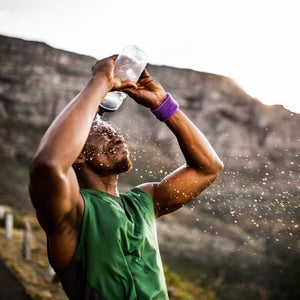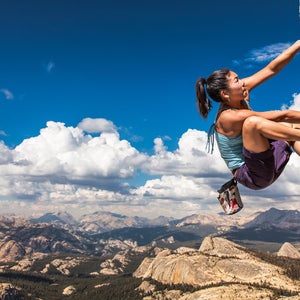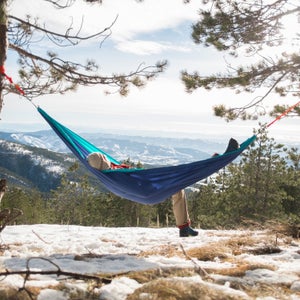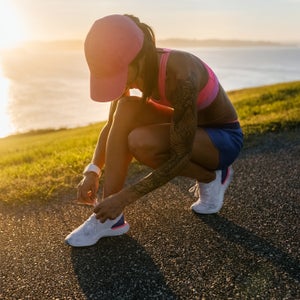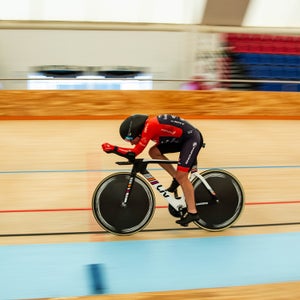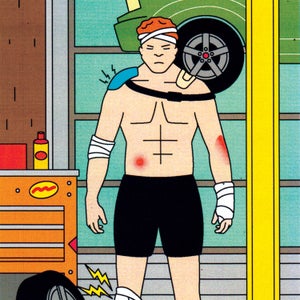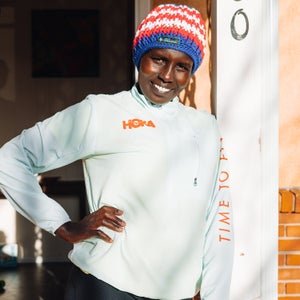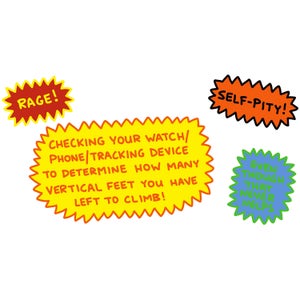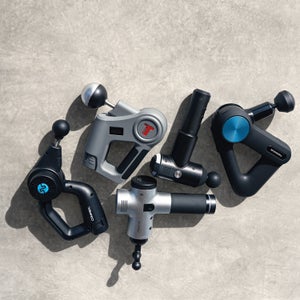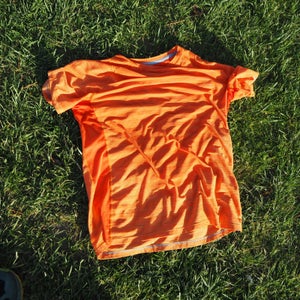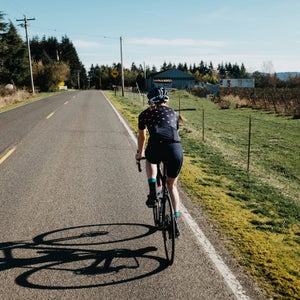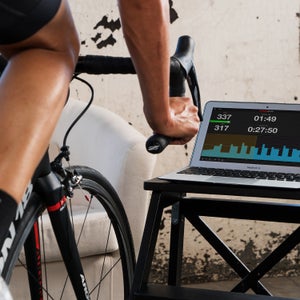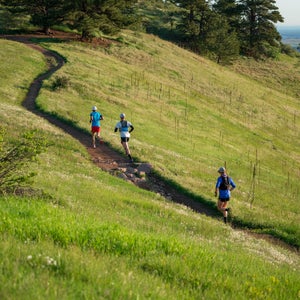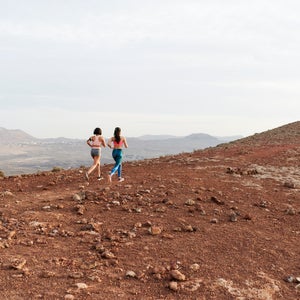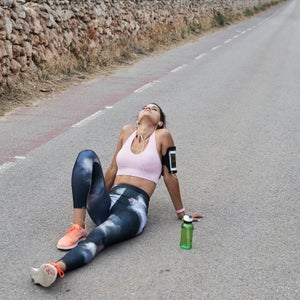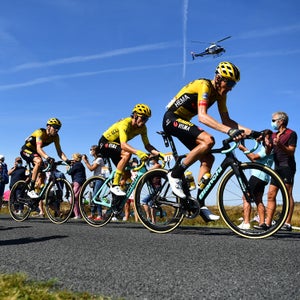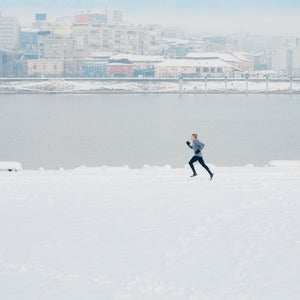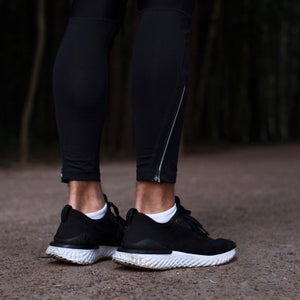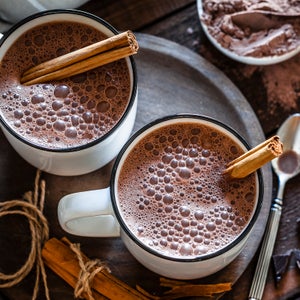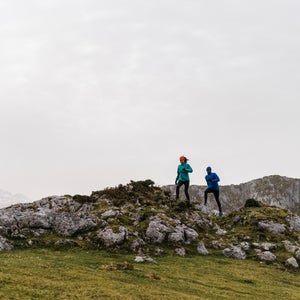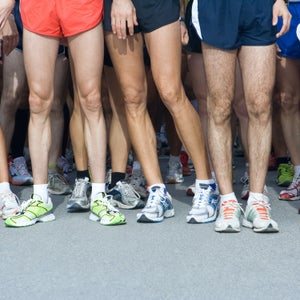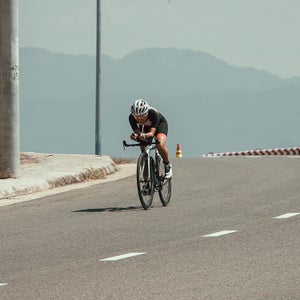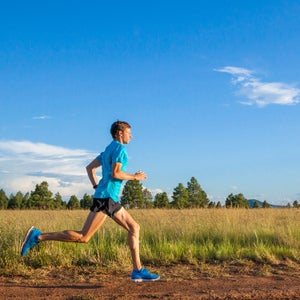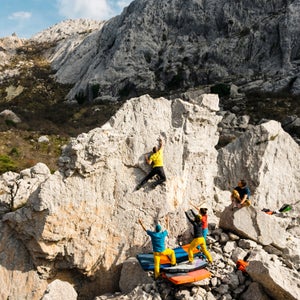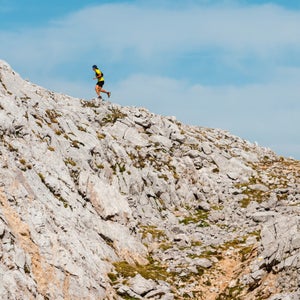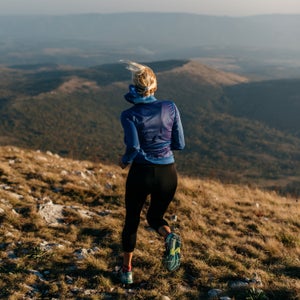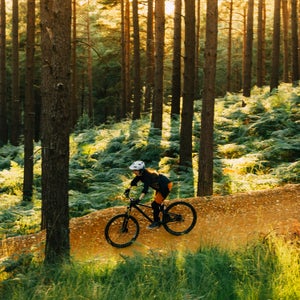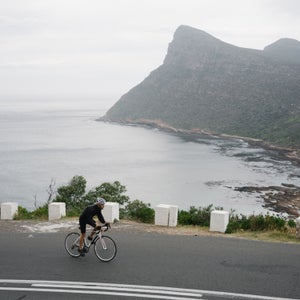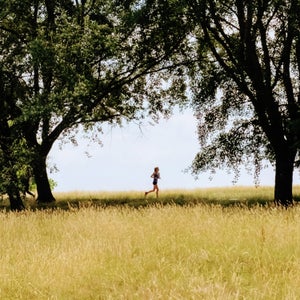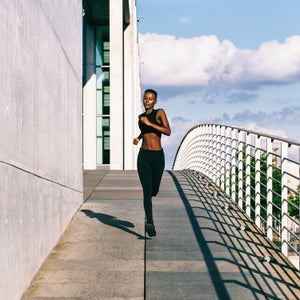Endurance Training
ArchiveSports medicine physicians are rethinking the relationship between damage to your body and how it feels
Mike McCastle has found a very unusual way to benefit others: by enduring agonizing physical challenges
As skimo prepares for its Olympic debut in 2026, sports scientists explore the sport’s demands
Your GPS watch and other gadgets are great at describing training, but prescribing it is a harder challenge
A visit to Eliud Kipchoge’s Kenyan training camp reveals how he dominates the marathon world
A mathematical model explains how endurance and speed come together to determine who will win a last-lap sprint
How two rival teams fought storms and sleep deprivation to claim an 18-year-old paddling FKT
A new study quantifies the effects of running on technical terrain
A new study uses machine learning to quantify the effects of temperature, humidity, heat, and sun
Make sure to include these smart, specific workouts in your half marathon training to land you that PR.
Scientists take their equations for the energy demand of hills and rough terrain out into the real world
The link between serious cycling and poor bone health is well established, but researchers are still debating what to do about it
Over the past few years, McCastle has completed 5,804 pull-ups in a single day, pulled a 5,000-pound truck across the Mojave Desert, and climbed a rope the equivalent height of Mount Everest. How on earth has this Navy SEAL dropout accomplished some of the craziest physical feats in recent memory?
The physiological differences between men and women affect how much fluid they store, how they sweat, and how quickly they heat up. Does that matter?
Yes, people sometimes die while running. No, that doesn’t mean running is “dangerous.”
A new study investigates how different types of physical performance are affected by the time of day
A new study suggests that hydrogels enable you to down more carbs with less digestive distress, and race faster as a result.
A new study measures the physical and cognitive load of four different treading techniques. The key? Generate lift.
Aging doesn’t mean you have to stop getting stronger. Here we’ve provided training tips for continued improvement.
Regular exercisers drink more, a new study confirms, but are less likely to be problem drinkers
Supersapiens’s new continuous glucose monitor promises to help athletes manage their energy levels. But can it really stave off a bonk?
It’s not exactly fun in the moment, but after, you’ll say it was the best time you ever had
A long-running gym debate about whether to train each limb separately comes to the cycling world
In order to achieve his first UTMB win, the American ultrarunning star is taking a whole new approach: rest
Endurance-science experts explain the world record holder’s incredible marathon dominance
A new study of Western States ultrarunners illustrates the power of looking beyond simple risk factors to predict injury
Scientists have been debating whether muscles contract more slowly as you age, but new data suggests the real problem is a loss of strength
After years of debate on the dangers of “too much exercise,” researchers sum up the state of current knowledge
Exercise and digestion often don’t mix well, but scientists are on the case
Israel Start-Up Nation’s physiologist Paulo Saldhana explains the data—and the feelings—that determine who attacks when in a cycling race
In her new book, ‘The Joy of Sweat,’ Sarah Everts answers all of our writer’s questions about perspiration
They’re deceptively straightforward, but if you can follow them, you’ll see the benefits
It’s the simplest and cheapest performance booster available, so why don’t elite athletes take advantage of it?
As events as big as the Olympic Trials get rescheduled because of heat, we went to the science to find out how you should decide when it is too hot to run safely
It turns out we have a lot in common
New research fine-tunes the details of heat adaptation
When an elite cyclist attempts to ride a bike as far as possible in an hour, one thing is guaranteed: they will hurt like never before
A spiral of injuries—and the attendant existential crisis—can be an opportunity to revisit the fundamentals
Tuliamuk had secured her spot in the Tokyo Olympics—then 2020 happened. Fortunately, she’s always run for more than just the medals.
There you are, at the bottom of a hill, on foot, or on your bike, or on skis, ready to start up. But are you really ready? Here are a few strategies you might consider. 1. Choosing More Pain for Less Time by Going Faster over Less Pain for More…
These tools are suitable for beginners and hard-charging athletes alike
Do you jog around the block at the end of a run so your mileage equals a nice round number?
The Saxx Hot Shot outperformed every other top in my quiver
Hiking can be a blast, but it won’t be if you're struggling every few feet. Here’s how to get ready for trekking, from easy day hikes to the longest thru-hikes in the world.
What separates the best endurance athletes from everyone else isn’t their amazing lab test data or power values—it’s how well they maintain those values after a few hours of exhausting exercise
Champion endurance athlete Rebecca Rusch figured her quest for enlightenment on the Iditarod Trail would hurt. She was right.
The newly revamped TrainerRoad cycling app uses an advanced algorithm to create training programs custom-tailored to the user. Our writer gave it a go.
Running alone against the clock is very different from trying to beat other runners, but untangling how our minds process the challenge is “like knitting with spaghetti”
A new review assesses what it takes to maintain endurance and strength when circumstances interfere with your usual training
Staying in hiking shape during the off-season is a serious challenge, but it’s not impossible
Changing hormone levels affect your tendons, ligaments, and muscles, and evidence is mounting that this can influence your chances of injury
Mental fatigue has become a hot topic for sports science researchers, but its effects remain controversial
At the 2019 World Championships, researchers gave marathoners and racewalkers swallowable thermometer pills and used thermal cameras to assess the effectiveness of hydration and cooling techniques in the heat of competition
Detailed power data from sprinter Marcel Kittel and climber Tom Dumoulin highlight the contrasting physiological demands faced by different riders
Tallying which articles are most frequently cited in later studies reveals the biggest trends in sports science—and some oversights
Unlike heat training, repeated exposure to cold doesn't necessarily help you handle winter weather better
Pronation is out of favor, comfort is too vague, but maybe measuring your "habitual motion path" will guide you to a shoe that minimizes your injury risk
Top trail runners mix running and walking on steep terrain, but even scientists aren't sure how we choose which is better
A leading company redefines what it's actually measuring, and explains why that's what we really wanted all along
Swap your protein shakes for these cozy beverages packed with protein and electrolytes
A new study explores the links between exercise and pain perception, and how easily they can be manipulated
After half a century of confusion, researchers have a new perspective on the transition from "aerobic" to "anaerobic" exercise
When you stop breathing, oxygen flowing to your brain actually increases—at least for a while
A basic principle of training says you get better at the things you do most. So why does cross-training work?
You don’t need an elaborate workout plan to get the most out of your resistance workout; you just need to tune into how you feel
Biology suggests that decades of running should invariably blow out your knees. Scientists are trying to understand why that doesn’t happen.
Even compared to athletes from other sports, endurance athletes have a unique relationship with discomfort
A new study asked coaches to rank the most economical runners after watching video footage. It didn't go well.
A new analysis casts doubt on the idea that people are born as "responders" or "non-responders" for training in thin air
A new study suggests that strength training is more important than electrolytes for preventing cramps
Should all your training be hard? Do you need to stretch? We've got answers.
I've tried to carry water in every way imaginable. I think this piece of gear works best.
Updated guidelines write a prescription for exercise that may be just as important as traditional cancer treatments for maintaining—and regaining—your health
When the going gets tough, which sensation actually slows you down?
The ability to sustain a high rate of energy burn for a prolonged period of time may help ward off cancer
Learn how to kick-start the habit of daily movement with our free ten-day email course
Sweaty workouts do enhance your endurance, according to a new theory, but it may take longer and function differently than previously thought
A new study uses the training data you upload to sites like Strava to estimate the "critical speed" that determines your race performance



